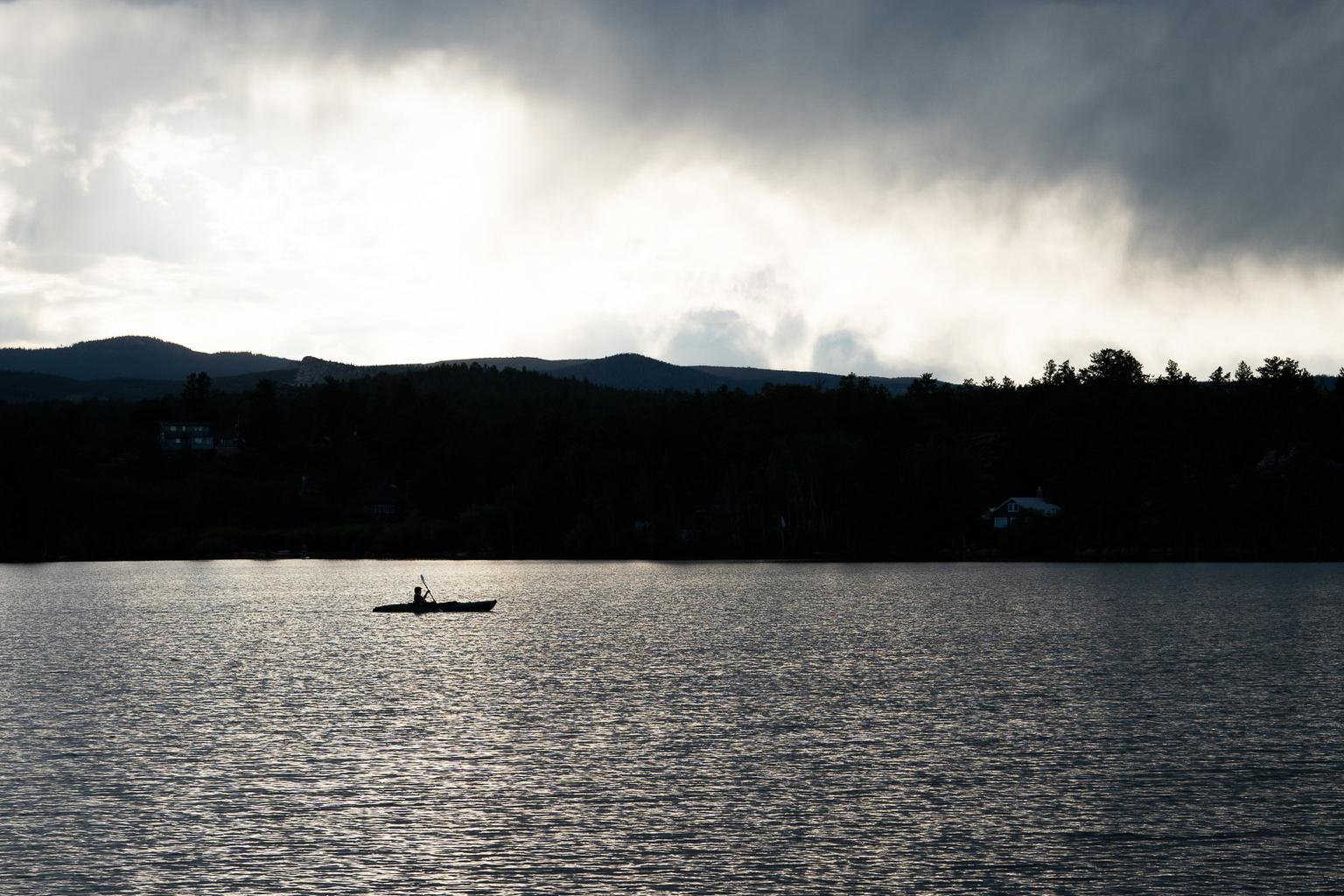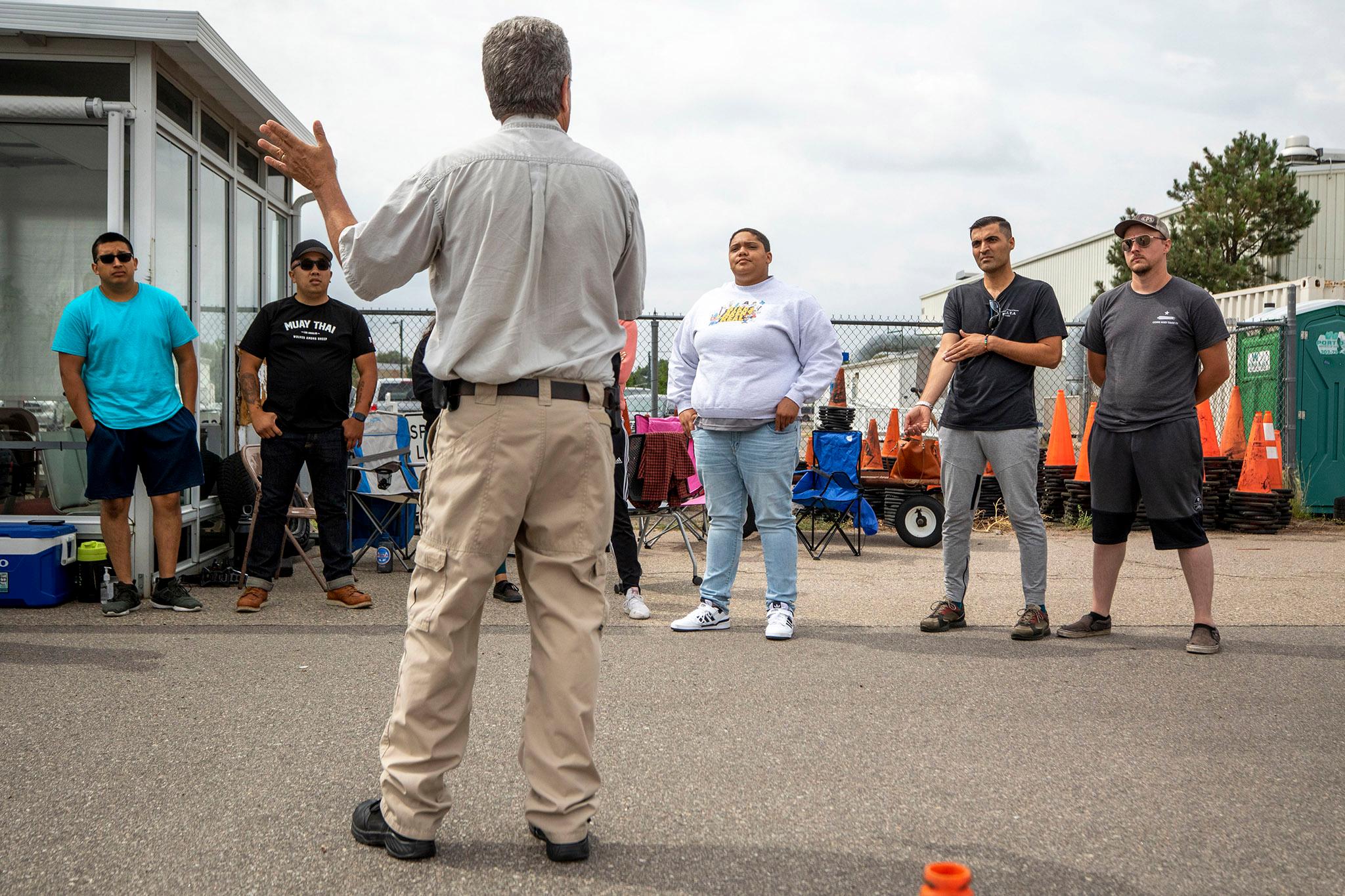
One works at a bank, another at a sprinkler business. One is an armed guard at a security company and another is chipping in weekend shifts at his family’s construction business.
And after a year of protests against the police across the country, they all decided they wanted to become cops.
“If I can stop someone by being scared from being pulled over because of the color of my skin and how I act, maybe that’s what I want to do,” said Kristen Heinonen, a Black 23-year-old from Lakewood. “I think to be the change in the community you need to have an active role in it and I think this is the best path to take.”
CPR News followed the 13 cadets currently enrolled at the Community College of Aurora’s police academy for several months to try and understand the next generation of law enforcement officers and what has attracted them to the field now — a job more loaded with scrutiny and danger than ever before — and how what they are learning has changed.
None of the students are guaranteed jobs when they graduate, but their education will put them in a position to be hired at shorthanded agencies across the state — particularly if they pass the Police Officer Standards and Training test.

Some of the cadets, mostly 20-somethings with existing full-time jobs, want to contribute to the current push for racial equity from the inside. Some feel driven to help their communities. Some just want people to have better interactions with law enforcement and figure they could do some good. All say they want to help.
“It’s a calling,” said Victor Dominguez Ramirez, who joined the academy after graduation from Colorado State University. “I want to help people.”
But for each of the cadets, that calling has arrived at what may be among the most perilous times for law enforcement in our nation’s history.
Joining up as violence against officers grows and as laws change policing
In 2020, there were more assaults and murders of police nationally than any other previous year, and the increase has been steep and swift. There were 4,071 more officers assaulted in 2020 than 2019, according to the FBI’s Law Enforcement Officer Killings and Assaults database. Two officers in Colorado have been killed by gunfire in 2021.
Law enforcement agencies across the state are also desperate for new people to join their ranks. In 2020, three-quarters of Colorado agencies reported a shortage of full-time sworn officers and 69 percent say applications were down from a year prior, according to the 2020 Colorado law enforcement survey.
“For you guys to still want to come in and do this job, I applaud you,” Eric Stewart, an adjunct professor at the Community College of Aurora told the cadets over the summer. Stewart is the deputy chief of police at the Loveland Police Department. “There are people leaving law enforcement in droves all over the place.”
The 13 cadets enrolled at the community college’s police academy are among the first classes of people who took steps to become police officers after George Floyd’s murder last spring in Minnesota -- and the subsequent national reckoning against police violence which led to months of protests and sweeping police reform nationally.
In Colorado, the state legislature’s passage of Senate Bill 217 in 2020 and House Bill 1250 in 2021 added additional use of force rules, made it easier for prosecutors to file charges against officers and opened the door for civilians to sue individual officers for misconduct.
Body cameras will eventually be required statewide, as will data collection on who officers stop and why.
Aurora community college’s adjunct professors, most of whom are current cops in top agency jobs across the state, often spoke candidly in class about the changes and how much harder it is to be an officer now.
“There is an assault on law enforcement nationally, but there is an assault on law enforcement in this state, for whatever reason, these legislators … I don’t know what they’re trying to do,” Deputy Chief Stewart told the cadets over the summer. “It’s sad.”
Over the course of 10 months, the students were trained in driving, in using weapons, on use of force techniques, homicide investigations and keeping a cool temperament on the job. They spent long summer evenings doing burpees and pushups and hot Saturdays out on unshaded pavement practicing reverse and U-turns in police vehicles.
This year’s class was delayed several times because of COVID-19. There was no vaccine requirement to attend the course and some of the cadets themselves got sick.
“I don’t get involved in their decisions and I presented them with the argument that their job may require them to get vaccinated,” Carter said. “We’ll see what happens.”
What the cadets are learning
At the Community College of Aurora, the cadets are required to show visitors and professors respect — but the academy is distinctly non-militaristic in style. Supportive, even. This is a departure from many of the agency academies, which are amid their own reforms in how they treat cadets and expect them to behave to people on the outside.
“I’ve always viewed law enforcement in a way, it’s not where they’ve been, it’s what they can become,” said Michael Carter, director of the Community College of Aurora’s director of the police academy, said of the cadets. “You shape, by the way you treat them, you shape their future destiny as an officer … If I walk up and I’m polite and professional, maybe I give you a warning, but if I do it in the right way and in the proper way, then all of the sudden I’ve changed the experience.”
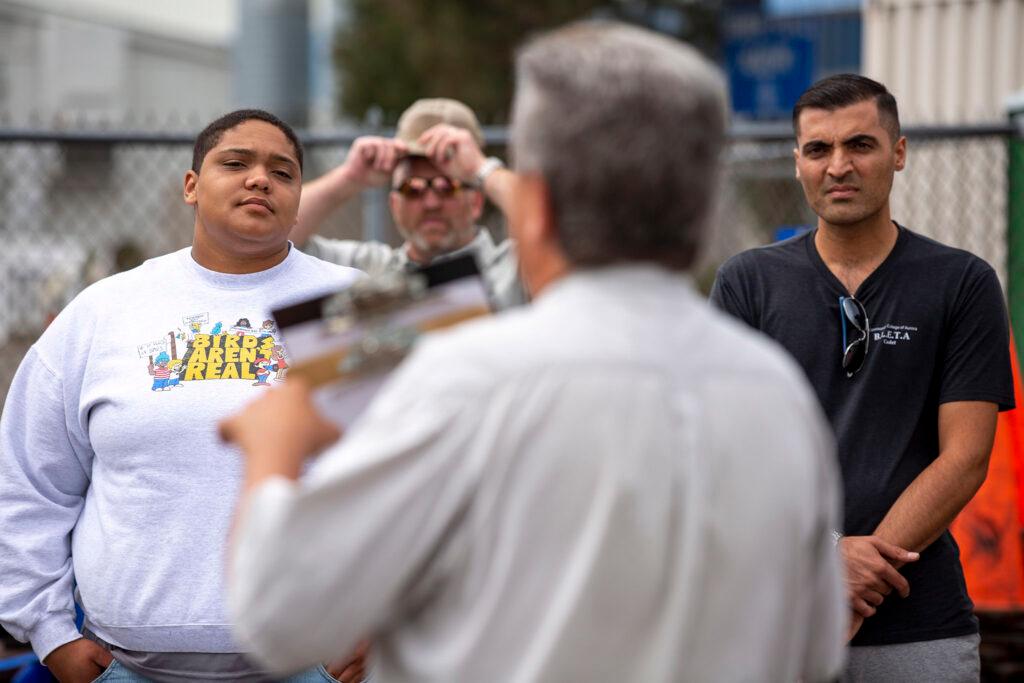
In response to the police reform movement’s demands for change, the community college’s program is among the first places in the state to implement dedicated emotional intelligence and Diversity, Equity and Inclusion training for incoming officers.
“I get called the “N” word every day, all day. I’m driving to the jail, but my inmate in the back is just going at it,” said Bruce Williams, a Black Sheridan police officer and adjunct professor at the community college. “I don’t say anything … I have to take it. You’re going to get this night in and night out in this job. It’s mentally tough. But, it’s fun at the end because you’re helping people.”
Kevin Watts, a federal law enforcement officer, talked about how difficult it can be to maintain a sense of calm amid the unbroken stress, danger and upheaval of a long shift. He stressed to the cadets how important it is for them to have peer support and even flag a partner when they didn’t feel emotionally steady enough to respond to a potentially stressful, or dangerous, call.
“This job, it’s a kind of job that will uncover every small incongruity in you during the day. If you’re dealing with family problems, stress, life and it’s out of control and you say ‘I’m going to man up or woman up and I’m going to go to work and get through this shift,’ you’re going to fail,” Watts told the cadets. “Because you’re going to get into some situation that’s going to bring you to your limits and it’s going to uncover that.”
To mimic some of that unease, the adjunct professors and trainers have tried to funnel the cadets through some purposefully hairy moments during their training — including mock scenarios where they have to respond to a domestic violence call or a mass shooting incident.
Most cadets say the new statewide laws calling for additional accountability, passed after the protests, don’t scare them too much. They do worry, though, about making a mistake.
“Getting sued is really, really likely, almost guaranteed if you’re a cop,” said Jay O’Bara, a 29 year-old Longmont student with aspirations to lead a force someday. “You’re going to get sued at some point, hopefully not successfully if you’ve done all the right things.”
Kristen Heinonen: ‘In my community, you don’t take this path’
Kristen Heinonen’s mother wanted her to go into the medical field. So when she graduated from Alameda High School, in Lakewood, she studied biomedical sciences at the University of Colorado at Colorado Springs.
But she wasn’t happy. She left school and mulled over joining the military — something all the men in her family have done — before deciding that too wasn’t for her. And then last year, amid all the protests for racial equity, she began to think that she would like to be a police officer.
“In my community, you don’t take this path, you take a different one,” she said. “We’re not really fans of the police over there.”
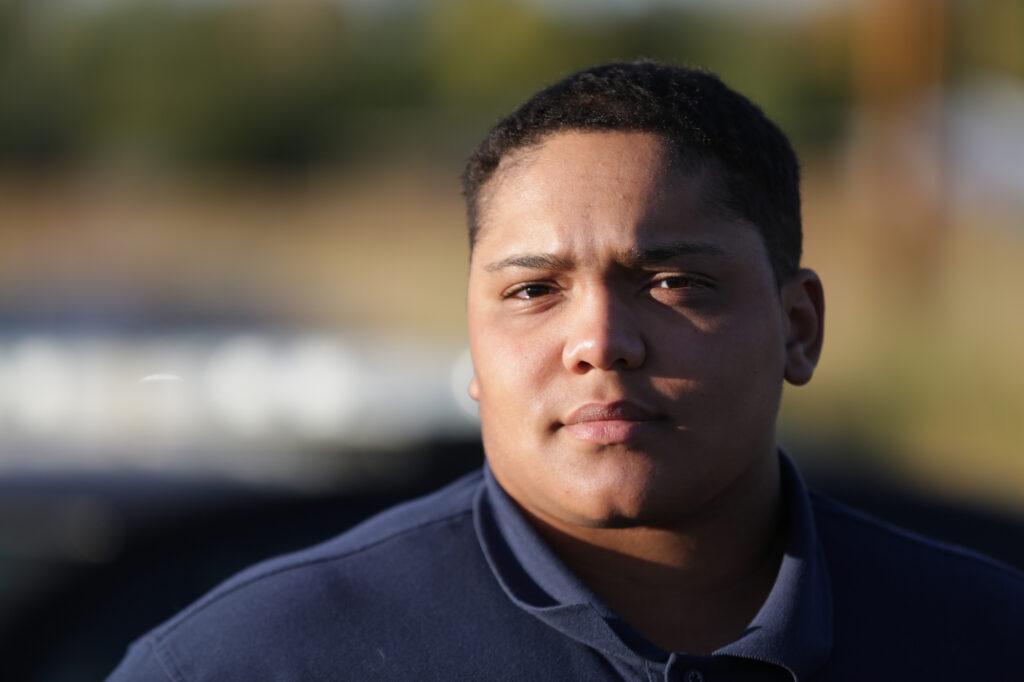
Heinonen, 23, is married and calls her wife “my number one supporter … without her I wouldn’t be able to do this. I would really just be floating around and working.”
Heinonen works at a bank now — a job she says she hates because it’s so repetitive. She doesn’t have many outside interests, mostly because she’s been working since she was 16 years old.
“So instead of going to hobbies in high school, going to parties, getting drunk, I always was working:, work, make money, work, make money,” she said.
Though Heinonen, who is Black, has never had any bad experiences with police, when she has been pulled over on occasion, she was petrified.
“One night I was driving down Wadsworth coming home from my job and my lights were turned off and I got pulled over and I just remember shaking (while) getting my ID out of my wallet and I had to tell them I’m sorry,” she said.
She wants to be a traffic cop, so she can help make the most common type of interaction regular people have with law enforcement officers be a better experience.
“You see cops on your worst day. I don’t want to be like that,” Heinonen said. “I want to be like, ‘Oh you have a flat tire? Let me help you.’”
Jay O’Bara: ‘What does God want me to do with my life?’
For O’Bara, 29, the path to becoming a police officer started with a series of conversations with friends, his pastor and God.
He had graduated from the University of Colorado at Boulder in 2014 with a psychology degree and was working with Loomis, the cash handling company. He thought about going back to graduate school to become a teacher, but his hours at Loomis weren’t flexible enough so he went to work at an auto body shop in Boulder.
O’Bara spent much of his 20s living with roommates, active in his Boulder church and wrestling with a looming question:
“OK, what does God want me to do with my life? What am I supposed to be doing?” he said.
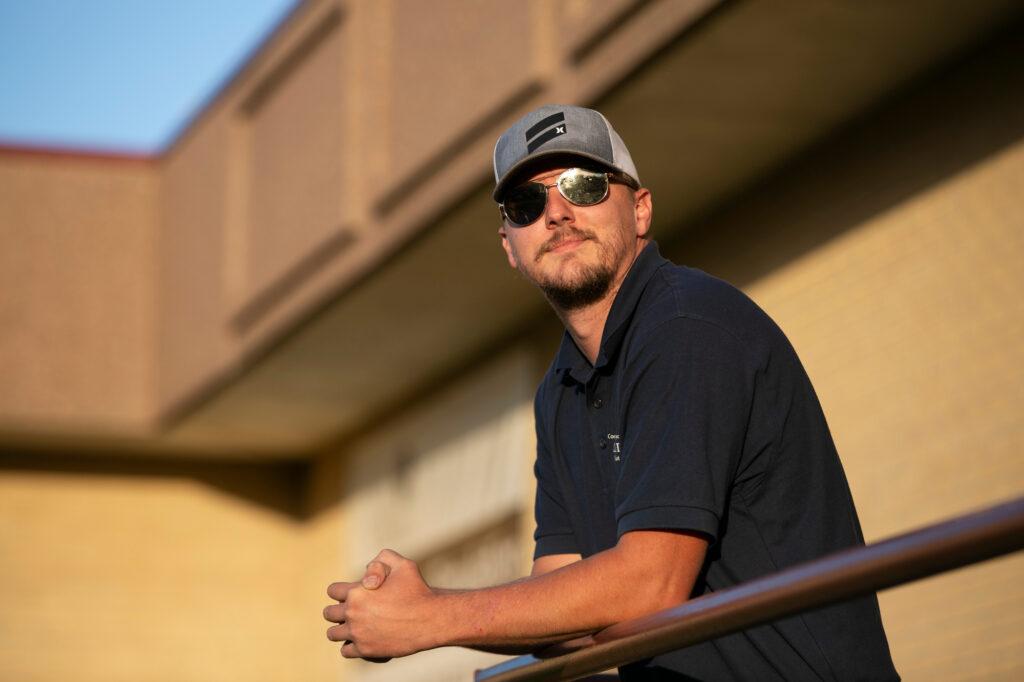
He started to think the answer might lie in law enforcement; around that same time, he said a lot of people he cared about started telling him, unprompted, that he “seemed like a cop,” — in a good way.
“My pastor just one day, said, ‘Jay, I could see you being a police officer. You’d be a good police officer,’” he said. “And I thought, OK, I’m getting something here.”
O’Bara needed to keep working full-time to support himself — a story echoed by all the cadets at the academy — and was drawn to the community college program because all the classes are at night or on the weekends. He currently has a job at a sprinkler company and lives in Longmont.
While he said he’s open to all kinds of law enforcement jobs, he wants to be in a place where officers are respected and take training seriously. O’Bara eventually wants to be a detective and, down the road, a commander or a chief.
“I do believe I’m called for that, to start making the changes I’m talking about today. The best police chiefs are the ones who get there, do the job and they’re not afraid of anyone,” he said. “I want to get up every day and do the right thing. Doing the right thing is what I care about.”
Victor Dominguez Ramirez: ‘It can get tough, but I just know it’s going to pay off’
Ramirez, 23, fell into wanting to become a police officer after obsessively watching “The First 48” — a documentary series about homicide investigations across the country.
He was studying general psychology at Colorado State University and thought he wanted to be a therapist — but eventually he decided isn’t suited for a desk job. He wanted to be more hands-on, but he still wanted to help people.
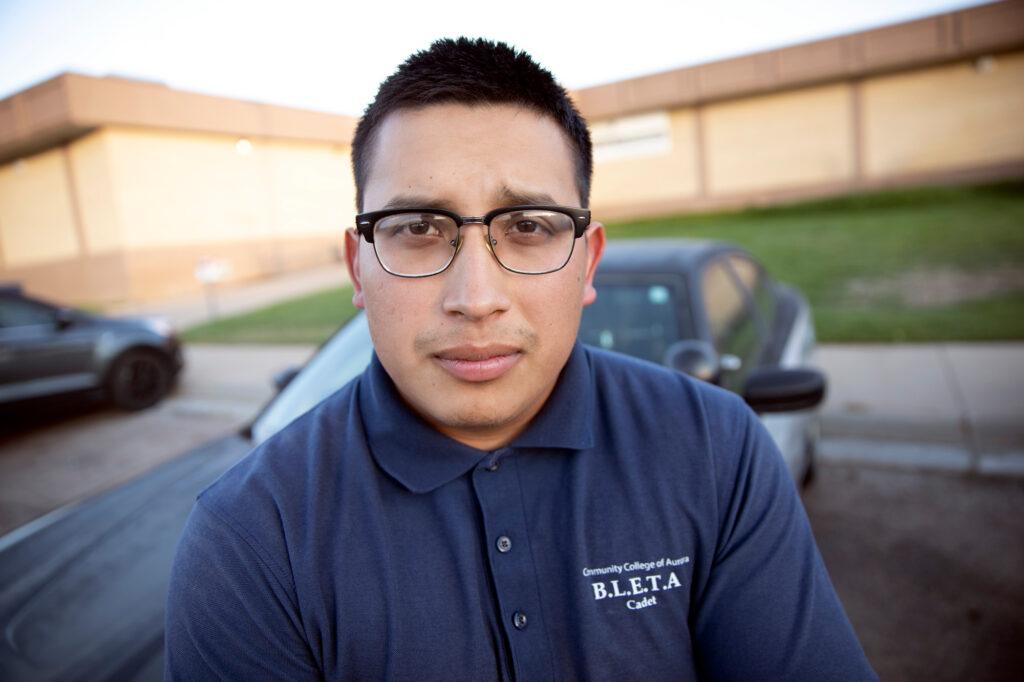
Within the academy, Ramirez’s fellow students often gently poke fun at him for having all the right answers, for doing the best on the exams and for generally being among the top students.
For Ramirez, who takes pride in his top status, the reason for his success is simple: he just likes school.
He graduated from CSU in the spring of 2020 with the goal of applying for police departments right away. But in those early days of the pandemic, almost everything was on hold: hiring, ride-alongs and shadowing opportunities at various agencies.
“I wasn’t getting as far as I wanted to in the hiring process,” Ramirez said. “I thought I had something going for me.”
Instead, he went back to his old summer and weekend job, working construction with his dad’s company in Aurora. His parents helped pay for college and supported him all the way through, so he felt like it was only fair to pay them back.
Ramirez did a little digging and discovered that if he was certified by the Police Officers Standards and Training board, he might have a leg up on other applicants, so he threw in an application for the Community College of Aurora’s night program to get his POST certification.
With this schedule, he could also continue to help his dad when he wasn’t in class.
“It’s working during the day, do this at night, I work some Fridays and I work some Sundays,” he said. “It can get tough, but I just know it’s going to pay off in the end, if I keep working, keep going.”
Ramirez likes the mountains and wants to apply for metro area agencies that are a little closer to them than Aurora — including Thornton, Lakewood, Boulder and Fort Collins.
“I love Aurora, but I’m ready to at least get a little bit away,” he said.
Maiwand Ahmadzai: ‘For the most part, people like you … I think that’s still true’
Ask about his childhood growing up in Kabul, Afghanistan, and 35-year-old Ahmadzai doesn’t have many memories.
He does remember an uncle visiting his family from Virginia in the early 1990s and bringing him a bike — it’s the one thing that stands out to him.
“I wouldn’t say it was normal because I spent my childhood growing up in war after war after war,” he said. “I usually tell people I’m a product of war. I was born when we had war. I went to school during war.”
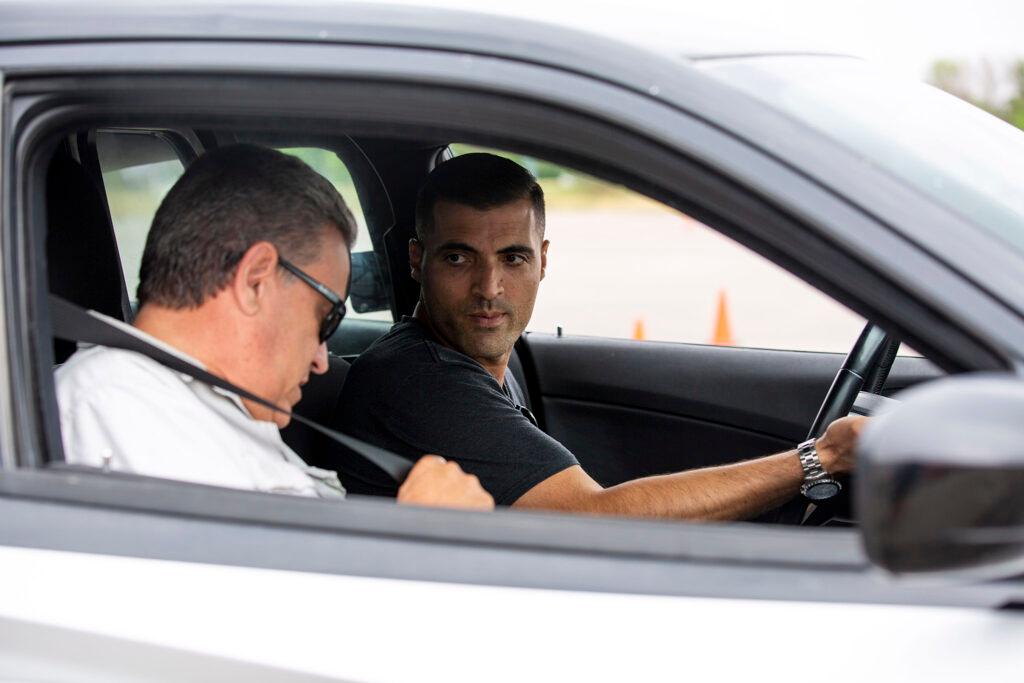
Ahmadzai was the youngest of five kids and has two older brothers and two older sisters.
He attended some university classes in Afghanistan and then, for six years, he worked as a translator for the U.S. military and NATO in Kabul before moving over to the United States Agency for International Development for various projects.
He was approved to come to the United States in December 2016. He brought his wife and young son.
“It wasn’t bad, people talk about a cultural shock, but I didn’t feel it,” Ahmadzai said. “I was already exposed to the culture working with the U.S. military.”
The family settled into an apartment in Aurora and he started working in a warehouse. Within a month, he got a security job downtown with the Grand Hyatt.
Ahmadzai said was drawn to security because it felt like he was helping people. He worked at the hotel for four years and then the pandemic hit and he was asked to go part-time — he preferred full-time work.
He has since transitioned to armed security and works for an apartment building company.
“I like policing; I think it’s a good career field. The pay is good. The benefits are good. For the most part, people like you,” he said. “I think that’s still true.”
He sees POST certification as an avenue to better pay, even if he stays in private security for now. His ultimate goal is to finish his bachelors degree and to eventually move into intelligence work.
Colorado’s freshly passed reforms don’t worry him — neither does the movement against police brutality.
“I’ll do the right thing,” he said. “You can pass 10,000 laws, it’s not going to scare me.”






